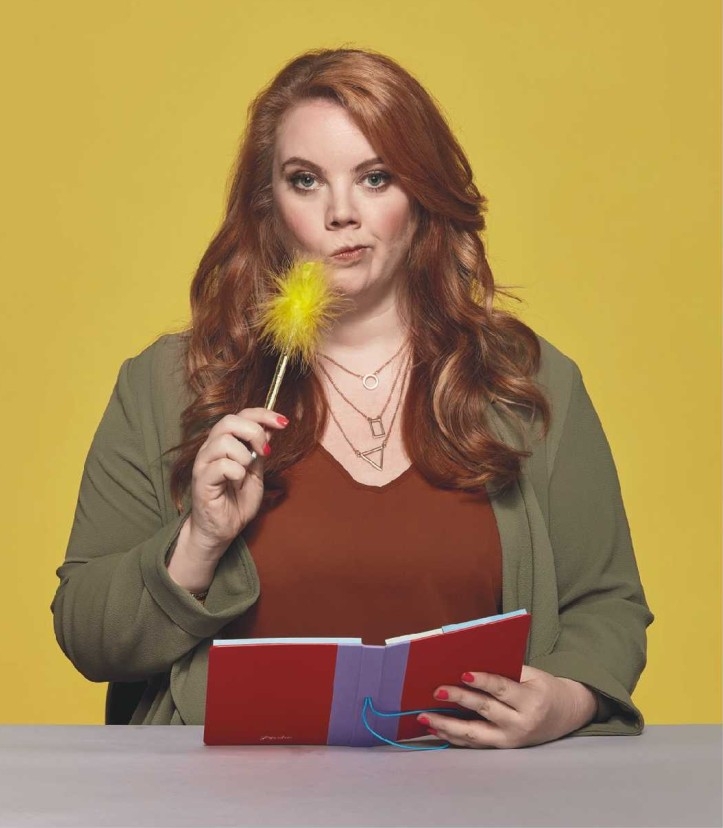LESSONS IN ADULTHOOD

PHOTOGRAPH: MARK HARRISON. HAIR AND MAKE-UP: CAROLINE PIASECKI. STYLIST: KATE ANYA BARBOUR
Because I am a bit of a swot, I don’t like to fail a test. So you can imagine my horror when a friend and I took an online personality test to determine levels of optimism – and I’m more of a pessimist than Eeyore! Certain I would come back strongly optimistic (I’ve given a TED Talk on the joy of failure, for heaven’s sake), I was shocked by the result.
I’d also assumed that, as an optimist, I saw the best in people, was kinder than pessimists and happier, too. There’s no reason to suggest any of this is true but so deeply did I believe it, I felt ashamed of my ‘flaw’. I tried to justify the result to my (optimistic) friend: it was a bad week; the weather was grim; I wasn’t a pessimist, I was a realist. My poor little pessimistic self bumbled on until my friend put me out of my misery; the test doesn’t determine who you are for all time, just how you are feeling at that moment. Pessimism and optimism aren’t embedded, they’re just a state of being and we can move between the two.
Apparently, there are three things to think about here. First, how personally do you take things? If a friend is in a bad mood, do you assume it is to do with you, or that they’re just a bit grumpy that day? Optimists favour the latter – they know they’re not individually responsible for everything that happens in the world. Second, how pervasive is a feeling for you? If something goes wrong, do you see it as a single incident, or a sign that more bad luck will follow? Eeyores see a missed morning alarm as a portent for the entire day. Finally, how permanent do you think a situation is? Optimists are believers in the motto, ‘This too shall pass,’ but, if we’re feeling pessimistic, we believe a bad situation will stay that way forever.